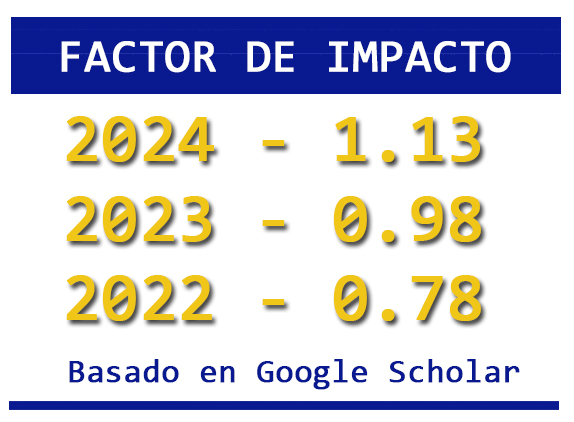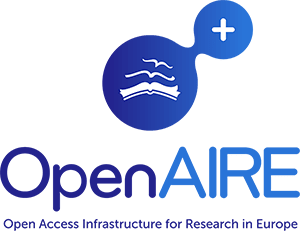LOS DISPOSITIVOS MÓVILES EN LA ENSEÑANZA DE LA INVESTIGACIÓN EN INGENIERÍA
DOI:
https://doi.org/10.36790/epistemus.v12i24.62Keywords:
Aprendizaje móvil, Dispositivos móviles, Investigación y diseñoAbstract
Por sus características de ubicuidad, interactividad y lenguaje multimedia los dispositivos móviles pueden ser utilizados como medios para enseñar la investigación y el diseño en el campo de la ingeniería. En este artículo se describe un estudio con enfoque mixto y diseño de estudio de caso, realizado con estudiantes de ingeniería en un curso de introducción a la investigación. Los alumnos utilizaron smarphones para capturar datos y crear información con fines de aprendizaje del proceso de investigación y diseño colaborativo de sistemas computacionales. Los resultados muestran que los dispositivos móviles no tuvieron un impacto en la capacidad de los estudiantes para analizar y formular problemas de investigación. Sin embargo, se evidencian factores como el grado de motivación para aprender con este tipo de herramientas. Se destacan las posibilidades que estos dispositivos ofrecen para trabajar en contextos cambiantes, así como su uso en la investigación y el diseño en ingeniería.
Downloads
References
C. Castaño, J. Cabero, Enseñar y aprender en entornos de M-Learning, Madrid: Síntesis, 2013.
C. Daughtery, Z. Berge, “Mobile Learning Pedagogy”, International Journal for the Scholarship of Technology Enhanced Learning, vol.1, no.2, pp. 111-118, 2017.
M. Ally, A. Tsinakos, Increasing access through mobile learning, Vancouver: Commonwealth of Learning Press, 2014. DOI: https://doi.org/10.56059/11599/558
B. Chen, R. Seilhamer, L. Bennett, S. Bauer,”Students’ Mobile Learning Practices in Higher Education: A Multi-Year Study”, EDUCASE Review, Jun. 2015. [Online]. Available: http://er.educause.edu/articles/2015/6/students-mobile-learning-practices-in-higher-education-a-multiyear-study
Y.-T. Sung, K.-E. Chang, T.Ch. Liu, “The effects of integrating mobile devices with teaching and learning on students’ learning performance: A meta-analysis and research synthesis”, Computers & Education, vol. 9, pp. 252-275, 2016. DOI: https://doi.org/10.1016/j.compedu.2015.11.008
M. Fuad, D. Deb, S.Whitaker, “Mobile Interactive Problem Solving for Active Teaching and Learning”, in Proc. 8th International Conference on Electrical and Computer Engineering, Dhaka, Bangladesh, 2014. [Online]. Available: https://par.nsf.gov/servlets/purl/10017487 DOI: https://doi.org/10.1109/ICECE.2014.7026849
G. Chávez Saavedra, B.V. González Sandoval, C. Hidalgo Valadez, “Aprendizaje Basado en Problemas (ABP) a través del m-learning para el abordaje de casos clínicos. Una propuesta innovadora en educación médica”, Innovación Educativa, vol. 16, no.72, pp. 95-112, 2016.
G.-J. Hwang, H.-F. Chang, “A formative assessment-based mobile learning approach to improving the learning attitudes and achievements of students”, Computers & Education, no. 56, pp.1023–1031, 2011. DOI: https://doi.org/10.1016/j.compedu.2010.12.002
L. Vargas Mendoza, M.G. Gómez Zermeño, R.L. Gómez Zermeño, “Desarrollo de habilidades cognitivas y tecnológicas con aprendizaje móvil”, Revista de Investigación Educativa de la Escuela de Graduados en Educación, no. 6, pp. 30-39, 2013.
J.M. Zydney, Z. Warner, “Mobile apps for science learning: Review of research”. Computers & Education, no. 94, pp. 1-17, 2016. DOI: https://doi.org/10.1016/j.compedu.2015.11.001
Ch.Yin, “SAMCCO: un Système d’Apprentissage Mobile Contextuel et Collaboratif dans des Situations Profession-nelles“, Ph.D. dissertation, Ecole Centrale de Lyon, Lyon, France, february 2011.
J. Organista-Sandoval, A. Serrano-Santoyo, L. McAnally-Salas, G. Lavigne, “Apropiación y usos educativos del celular por estudiantes universitarios”, Revista Electrónica de Investigación Educativa, vol.15, no.3, pp.138 -156, 2013.
S. W. Tabor, “Making mobile learning work: Student perceptions and implementation factors”, Journal of Information Technology Education: Innovations in Practice, vol.15, pp. 75-98, 2016. DOI: https://doi.org/10.28945/3524
C. Shuler, N. Winters, M. West, “El futuro del aprendizaje móvil. Implicaciones para la planificación y formulación de políticas”, UNESCO, Paris, UNESCO Report, 2013. Available: http://unesdoc.unesco.org/images/0021/002196/219637s.pdf
M. Serres, Petite Poucette, Paris: Le Pommier, 2012.
J.C. Yen, C.Y. Lee, “Exploring problem solving patterns and their impact on learning achievement in a blended learning environment, Computers & Education, no. 56, pp.138–145, 2011. DOI: https://doi.org/10.1016/j.compedu.2010.08.012
M. West, “Activando el aprendizaje móvil: temas globales”, UNESCO, París, UNESCO Report 2012. Available: unesdoc.unesco.org/images/0021/002164/216451s.pdf
Downloads
Published
How to Cite
Issue
Section
License

This work is licensed under a Creative Commons Attribution-NonCommercial-NoDerivatives 4.0 International License.
The magazine acquires the patrimonial rights of the articles only for diffusion without any purpose of profit, without diminishing the own rights of authorship.
The authors are the legitimate owners of the intellectual property rights of their respective articles, and in such quality, by sending their texts they express their desire to collaborate with the Epistemus Magazine, published biannually by the University of Sonora.
Therefore, freely, voluntarily and free of charge, once accepted the article for publication, they give their rights to the University of Sonora for the University of Sonora to edit, publish, distribute and make available through intranets, Internet or CD said work, without any limitation of form or time, as long as it is non-profit and with the express obligation to respect and mention the credit that corresponds to the authors in any use that is made of it.
It is understood that this authorization is not an assignment or transmission of any of your economic rights in favor of the said institution. The University of Sonora guarantees the right to reproduce the contribution by any means in which you are the author, subject to the credit being granted corresponding to the original publication of the contribution in Epistemus.
Unless otherwise indicated, all the contents of the electronic edition are distributed under a license for use and Creative Commons — Attribution-NonCommercial-ShareAlike 4.0 International — (CC BY-NC-SA 4.0) You can consult here the informative version and the legal text of the license. This circumstance must be expressly stated in this way when necessary.
The names and email addresses entered in this journal will be used exclusively for the purposes established in it and will not be provided to third parties or for their use for other purposes.
























